Sophie Howe on working for future generations
Mar 12, 2021
6 mins
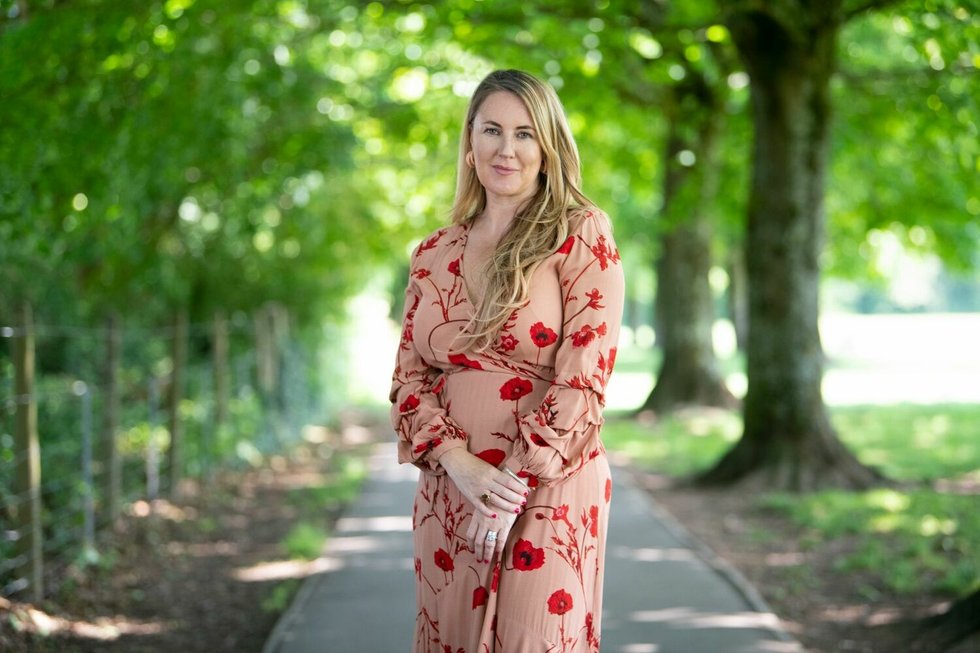

Writer and editor
In 2015, the Welsh government passed the Well-being of Future Generations Act, the first of its kind in the world, and with it came a brand new job title: future generations commissioner. Sophie Howe landed this unique role in 2016 and has spent the past five years challenging the system on everything from sustainability to well-being in the interests of generations to come. Here the Cardiff native talks us through “the best job in the world” explaining exactly what it means, personally and politically, to be the world’s first future generations commissioner with all its joy and frustrations, what she has achieved, and what she has in her sights.
You started out as a councilor at 21. Was this straight after university?
I sat the last exam of my finals on polling day––and I was six months pregnant at the time. So I did my exam in the morning and then went off knocking on doors and getting people out to vote.
I became the youngest councilor in Wales then, but my parents had been politically active. I grew up in quite a poor community in Cardiff, in the headlines for all the wrong reasons. I was the first in my family to go to university. I suppose that sense of injustice in the community that I came from spurred me into doing that, but it was quite an eye-opener at that age.
That’s a lot to take on. Was it a case of having all the energy of being 21, despite being six months pregnant?
Yes, and I also reflect on had I—and this is a big issue for me in terms of the underrepresentation of women in politics—already had Morgan, who’s our eldest . . . I don’t think I would have gone into politics because I didn’t know what I didn’t know on both fronts. I didn’t know what it was going to be like to be a mum and I didn’t know what it was going to be like to be in politics.
“…it’s no surprise to me really that it’s a struggle to get young people involved and engaged in politics in that more formal way.”
It was pretty tough combining the two. The struggle to juggle all the childcare, meetings, and expectations on you was quite an issue. I had to get to know a system that, one, is a system that is mad and makes no sense to normal people. And, two, I was almost a lone voice in that system for a younger generation. So it’s no surprise to me really that it’s a struggle to get young people involved and engaged in politics in that more formal way.
You went on to work as a political adviser, then deputy police and crime commissioner before taking up your current position. What does this role entail?
It’s quite a cool job description: guardian of the interests of future generations. What does that mean other than sounding like something from a Marvel comic? It means there are 44 public bodies covered by the act, including the government, all local authorities, our health boards, and so on, which have to set objectives that are going to take us towards meeting the seven well-being goals set in our act. My job is to monitor and assess the progress they’re making on reaching those goals, and to provide advice and support on how they go about doing that. I’m like a coach and a referee in a way.
A lot of it is about culture change. How do we break this cycle . . . of short-term decision-making? A lot of what I do is trying to unpick policy and legislation that came before the Future Generations Act, or even some of it afterward. Our transport strategy, for example, was focused on car usage—well, that’s not looking at a sustainable future—and our planning policy was all about getting the maximum number of houses on the lowest-cost land. This isn’t aligned with the Future Generations Act. There’s still a huge amount to do.
We also have this helicopter view over what’s going on in Wales, which no other institution, not even the government, has. We can see where the connections are. So I spend a lot of my time introducing people in government to other people in government, to try to make the connection.
As an example, we’re looking at Covid reconstruction and recovery, and the government has followed my advice—fair play—that there should be an investment in improving the quality of housing. To maximize the benefit of that investment, you need the housing people talking to the skills people so that when we invest in a house, we create jobs in improving the energy efficiency, we’ve got a skills pipeline to fill those jobs and the skills pipeline is targeting our most disadvantaged people: women, black and Asian minorities, ethnic people.
What we see in government and across public services is that everyone’s in their own little silos. They’re missing these opportunities to join up.
You have five children, aged six to 21. Does being a mum add an extra dimension?
Yes, it does. You’ve got to be careful not to place too much weight on your personal experiences because you only have this sphere of knowledge. But I do look at things like the school system. We’ve just reformed the curriculum in Wales towards a much more holistic focus on well-being, being good citizens, creativity, and entrepreneurial skills, which is brilliant. But I look at the fact that at 14, all that goes away, and the sole focus is on passing GCSEs. I can see that’s not good for my kids.
In terms of the actual power you hold, you’re their coach and their referee, but do you also hold organizations to account? Do you get to slap their wrists?
I can’t stop anyone from doing anything or force anyone to do anything… but I have powers. The crunchiest end of my powers is Section 20 reviews. I can go into a public body or collection of organizations and look at what they’re doing on particular issues. I’ve just done my first one on the issue of procurement. So, how will we spend in Wales, the £6 billion [annual spend for public bodies] on procuring goods and services in a sustainable way? I’ve looked at nine organizations, including the government, and I’m just about to issue some quite harsh recommendations to them, which they have a duty to respond to. They have to set up a course of action to address my recommendations.
You have a five-point plan for green recovery in your Manifesto for the Future report. Do you see the pandemic as an opportunity for governments to look again at what they’re doing? Is it the right time to be addressing the green issue?
You could look at things like the simple fact that the economics are going to be tough, but also our governments are making a scale of investment that they have never made before if you look at the furlough scheme and so on.
One of the things I’ve been advocating for is universal basic income because of its wider benefits for well-being and the way it addresses a range of issues such as health inequality and socioeconomic inequalities. Arguably, the furlough scheme is a form of universal basic income, which was seen as a left-of-field idea before, but now even the Conservative government in Westminster is doing a form of that. So I do think a crisis creates space and a greater acceptance for trying new things and innovating––and a greater pressure to do that . . . The sensible approach is to use that space to try to stave off the next crisis, which is a bit of a slow burner, but is undoubtedly climate change.
What’s top of your priority list at the moment?
The big push now is around the Senedd [general] elections in May. So it’s all about the 48 recommendations in my Manifesto for the Future [written for political parties ahead of the election], which include everything from universal basic income to shifting away from our “national illness service” towards a national well-being system. Things like everyone being able to access nature 300 meters from their homes and a national mission on education so we are taking business community groups and so on into the education system, not just in a one-off, ad hoc way, but [so that] they are a fundamental part of delivering the new curriculum.
Should all countries have a future generations commissioner?
It’s absolutely essential when we have this big, existential threat, like climate change, threatening our survival––and yet political systems are still pretty much paralyzed in terms of their ability to act in an effective way. It needs that formal structure within the system to call out the madness and to act in a way to drive that change.
There’s a discussion about a high commissioner for future generations at a UN level, which would be helpful. In the past few months, we’ve been speaking to the German government and the Finnish government. The SNP [in Scotland] has just voted to have wellbeing and future generations act in its manifesto for the next election. Plus there’s a private member’s bill going through the UK parliament to have the same sort of thing . . . there’s a huge movement growing.
I would like to leave my role in two years, and even beyond that, with a really big focus on trying to get as many countries in the world to adopt what is the common sense, and morally and ethically right, principles of us leaving the planet better than we found it.
Your eyes light up when you talk about your job. Do you love it?
Yes, it’s the best job in the world. I love it. It’s also potentially the most frustrating job in the world, but we are making progress.
Photo: Sophie Howe
Follow Welcome to the Jungle on Facebook, LinkedIn, and Instagram, and subscribe to our newsletter to get our latest articles every day!

More inspiration: Inspiring profiles
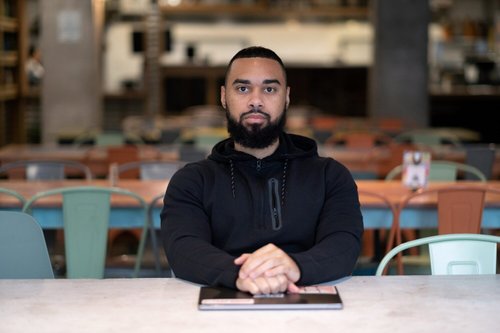
Be real, get ahead: The power of authenticity in your career
Pabel Martinez shares insights on how to allow yourself to be yourself, find your voice, and deconstruct stereotypes at work.
Apr 25, 2024
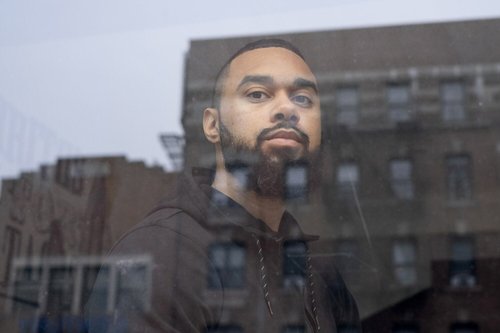
The professionalism paradox: Navigating bias and authenticity with Pabel Martinez
Pabel Martinez challenges the conventional norms of professionalism by unraveling the complexities of workplace discrimination.
Mar 11, 2024
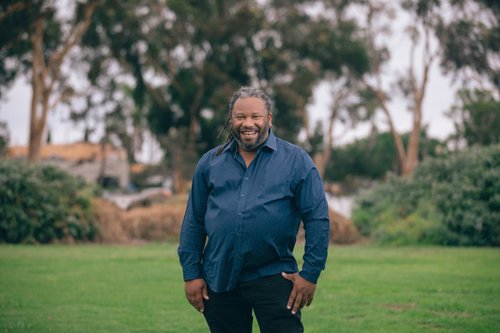
How play can make you happy, creative and productive at work
Work-life balance usually means separating work and play, but it might be a better marriage than you think...
Nov 07, 2023
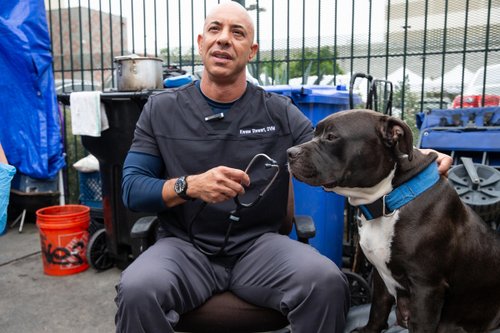
Project Street Vet: Caring for the unseen paws of Skid Row
Providing vet-to-pet care in some of California's largest homeless communities, Dr. Kwane Stewart shares the ups and downs of his remarkable work.
Aug 29, 2023
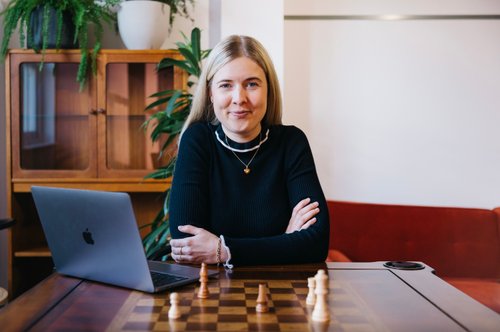
Girls learn how to have fun – and funds – by investing
A Danish trio is fighting gender inequality... on the stock market. We had a chat with one of the co-authors of the book Girls Just wanna Have Funds
Jan 30, 2023
The newsletter that does the job
Want to keep up with the latest articles? Twice a week you can receive stories, jobs, and tips in your inbox.

Looking for your next job?
Over 200,000 people have found a job with Welcome to the Jungle.
Explore jobs